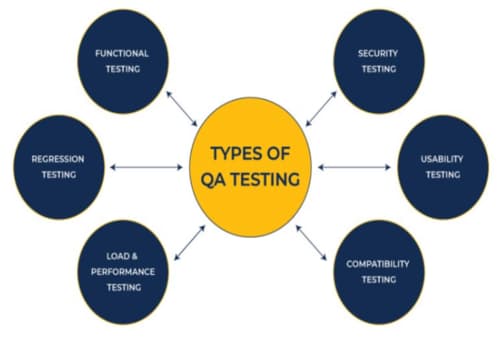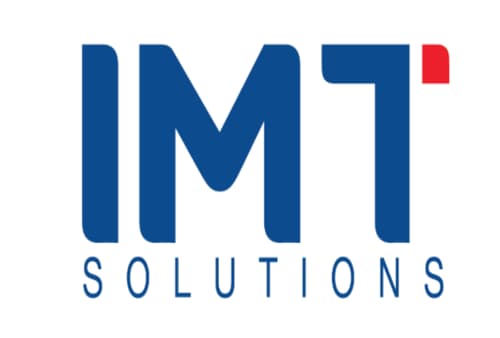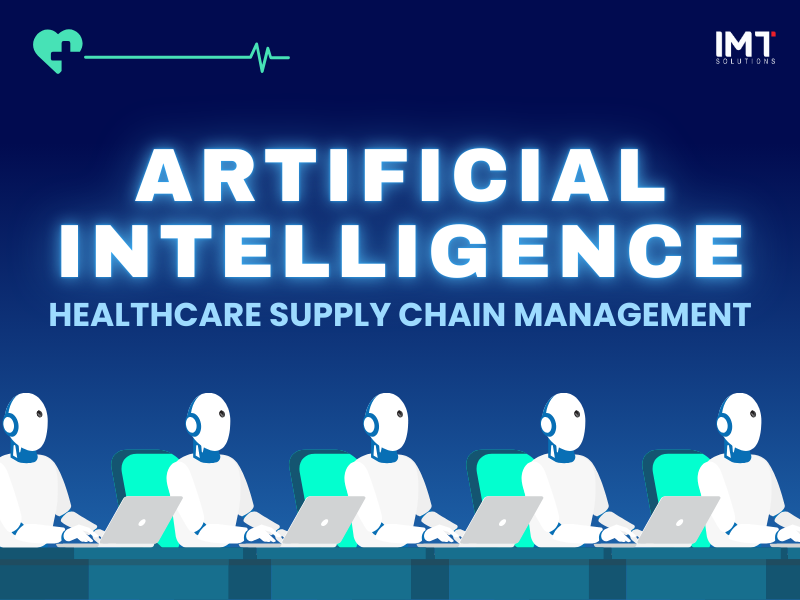Enhancing product quality with QA testing services
In today’s tech-driven world, ensuring product quality through QA testing services is a vital step in the software development process. It directly impacts a company’s reputation and profitability. According to a report by the Consortium for IT Software Quality (CISQ), poor software quality cost U.S. companies $2.08 trillion in 2020.
What is QA testing?
QA testing is a crucial process designed to assess the quality of software products by identifying bugs, technical issues, and design flaws before the official launch. The goal is to ensure that the product functions correctly, efficiently, and safely for users before it goes to market.
Key activities in QA testing include:
- Finding and fixing bugs/errors.
- Evaluating and ensuring the user experience (UX) and user interface (UI) are up to standard.
- Anticipating unexpected errors.
QA testing services ensure that your software meets client expectations before launch, resolves any issues beforehand, and addresses immediate concerns efficiently. These services are critical across various applications, ensuring precision and reliability, especially in complex domains like aviation and healthcare.

Types of popular QA testing services
Automation testing
Automation testing is a process that employs specialized software to execute tests and compare actual outcomes with expected results. This method is highly efficient in terms of time and reduces the need for extensive human resources, while also enhancing the accuracy, consistency, and effectiveness of testing.
Using automation testing tools in software testing streamlines the testing process, allowing quicker identification of defects and issues. These tools ensure that repetitive tasks are handled efficiently, freeing up human testers to focus on more complex aspects of the application. As a result, the overall quality and reliability of the software are significantly improved.
However, automation testing has its drawbacks, such as high initial costs due to software licensing and staff training. Personnel involved must have a deep technical understanding of programming and software technology. Moreover, automation testing isn’t suitable for tests involving user experience (UX) and user feedback, which require direct human interaction.
Scenarios unsuitable for automation testing:
- Frequently changing projects: Changes require test scripts to be reconfigured, which can be time-consuming.
- Small or short-term projects: The investment in automation testing might not justify the cost compared to manual testing methods.
Manual testing
Manual testing is a software testing process that does not use automated tools. Testers manually execute test cases and interact with the software as a user would to identify any defects. This method requires testers to conduct each test case manually, recording results and feedback.
While manual testing is time-consuming and labor-intensive, making consistency and accuracy challenges. It’s indispensable for evaluating real user experiences and essential when automation is not feasible. Particularly for applications requiring a deep dive into user experience and interface (UX/UI), manual testing provides insights that automated tools cannot. According to UserGuiding, in 2024, about 90% of users will have abandoned an application due to poor performance.
For more detailed insights into how manual testing can benefit your software development lifecycle. Consider integrating comprehensive QA testing services that include both automated and manual testing strategies.

Functional testing
Functional testing, a core component of QA testing services, is the process of verifying that the software’s features and functions work as required. It involves executing tests based on user behavior and can be performed either manually or automatically. Below are some cases where functional testing is applicable.
For large and complex applications, functional testing can be time-consuming and resource-intensive. It may also miss errors if not meticulously designed. In fields requiring high accuracy and reliability, such as aviation or healthcare, functional testing is essential and must be conducted thoroughly.
Some cases of Functional Testing:
- Login Testing: Ensuring users can log in with valid credentials and receive appropriate error messages for invalid inputs.
- Search Functionality Testing: Verifying accurate search results based on user input.
- Payment Process Testing: Checking the application of discount codes, tax calculations, and shipping fees.
- Ticket Booking Functionality: Confirming users can accurately select dates, times, and quantities, including seat selection if available.
Performance testing
Performance testing is a type of software testing that assesses the performance of a software application or system under various conditions. The primary goal is to identify and measure the system’s effectiveness in terms of speed, stability, scalability, and resource usage.
The drawbacks of performance testing include the need for significant resources and extensive time, as it requires setting up a complex test environment that mimics real-world conditions. For large projects with intricate systems, this can be particularly time-consuming. However, for smaller applications where high performance is not critical, detailed performance testing may not be necessary.
Compatibility testing
Compatibility testing is one of the QA testing services to ensure that software runs smoothly across different platforms, operating systems, and devices. The primary goal is to test the software’s compatibility with various configurations. This type of testing typically includes cross-browser, cross-platform, and cross-device checks.
While compatibility testing can be resource-intensive and time-consuming due to the need to test across multiple systems and devices. It is crucial for ensuring that applications perform well in diverse environments. However, for apps specifically designed for a single OS or device, such as an iPhone app or a Windows application, extensive compatibility testing across multiple platforms may not be necessary.
This testing helps in avoiding potential issues that could alienate users who access the software on different devices or browsers. Thus enhancing user satisfaction and broadening the application’s market reach.
How to choose the right QA testing services provider?
Ensuring the highest quality of applications and software products is paramount to success. A critical step in achieving this goal is to engage a reputable QA testing services provider. To make an informed decision when selecting a QA testing provider, consider the following.
Choose QA testing services by industry
Industry |
QA testing |
Criteria |
|---|---|---|
| Healthcare | – Functional Testing – Security Testing – Compliance Testing |
Healthcare applications must rigorously adhere to HIPAA and FDA standards to ensure accuracy and security of patient information. Functional testing verifies essential functions like appointment scheduling, test results, and medical record management. |
| Banking & Finance | – Performance Testing – Security Testing |
Financial applications require high performance for rapid transaction processing and strict compliance with security regulations. Performance testing ensures robust handling of high user load situations. |
| E-commerce | – Usability Testing – Performance Testing |
E-commerce platforms need to be user-friendly across all devices and browsers, optimizing the shopping experience to boost conversion rates and reduce cart abandonment. |
| Technology | – Functional Testing – Automation Testing |
Software frequently updated or modified benefits from automated testing to ensure consistency and reduce long-term testing costs. Functional testing checks that new features work as expected. |
| Education | – Functional Testing – Usability Testing |
E-learning platforms should be user-friendly and easy to navigate to effectively support teaching and learning activities, requiring stability and accessibility. |
05 Criteria for evaluating QA testing services provider
When choosing a QA testing services provider, there are many important factors that should be considered to ensure that you are choosing the right partner for your business needs and goals. Here are the specific criteria you should consider:
- Expertise and experience: Evaluating the expertise and experience of a QA provider is crucial. A provider with extensive experience can handle complex scenarios and offer optimal solutions for project-specific challenges. Review their past projects, particularly those related to your industry, to assess their capability.
- Range of QA testing services: A comprehensive QA provider should offer a wide range of services, including functional testing, performance testing, security testing, and compatibility testing. This ensures thorough testing of all aspects of your software.
- QA consulting services: Beyond testing, the provider should offer consulting services on quality and software development processes. They should provide specific recommendations to improve processes, enhance product quality, and optimize costs based on your business situation.
- Technological Capability: A good QA provider should use modern technology and advanced testing tools, continuously innovating and updating. Modern testing technology improves testing efficiency, ensuring tests are conducted quickly and accurately.
- Quality and Compliance Standards: The QA provider should adhere to international quality standards like ISO 9001 and information security standards like ISO/IEC 27001. Additionally, they must comply with legal regulations relevant to your industry, ensuring the final product meets high-quality and legal standards.

IMT Solution – Revolutionize your business
If you are looking for a QA testing services provider to check product quality? IMT Solutions, with over 15 years of experience and credibility in IT services, is the perfect partner for your business.
IMT Solutions is proud to offer comprehensive solutions to major enterprises like Starbucks, Microsoft, and UiPath. We commit to resolving any process streamlining issues, delivering detailed information, and supporting quick and cost-effective digital transformation. Our team of experienced experts specializes in advanced technology solutions that automate manual processes, eliminate unnecessary steps, and optimize operational efficiency, thus boosting productivity.
For example, instead of manually processing an invoice in five minutes, IMT Solutions can automate this process to just one minute per invoice without errors. Our solutions significantly save time, costs, and manpower.
IMT Solutions offers a wide range of IT services beyond QA testing services, including software product development, independent software testing, robotic process automation (RPA), mobile application, and more. Explore our portfolio and contact us today for a consultation!






